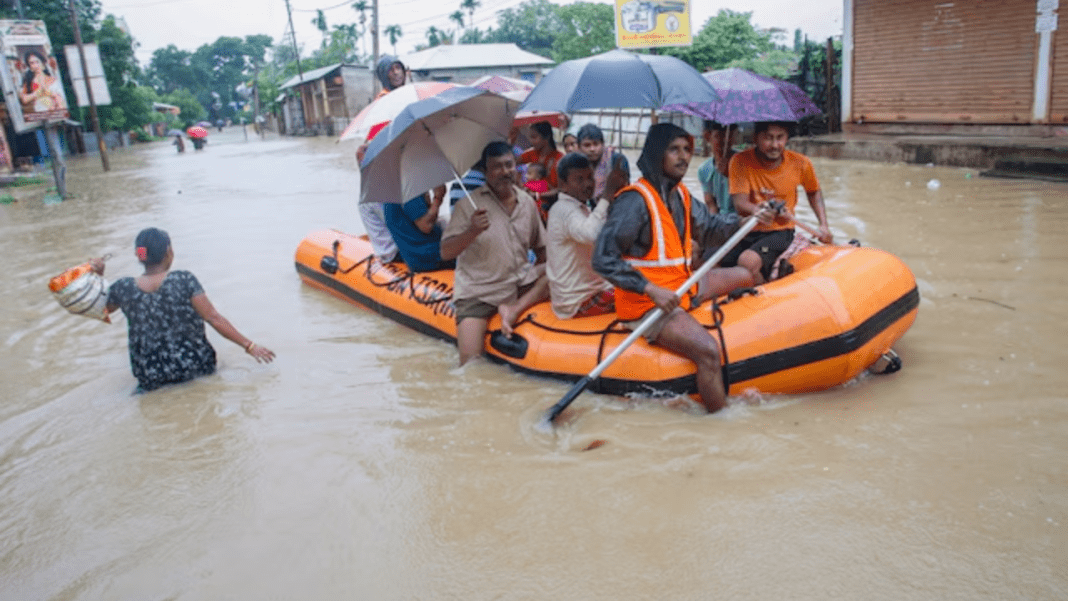Currently, heavy rains are affecting various regions, leading to flood conditions in multiple areas of Bangladesh. Amidst this crisis, Bangladesh’s interim government has pointed fingers at India, holding it responsible for the floods.
Bangladesh’s Interim Government Blames India
The interim government, led by Muhammad Yunus, who has been known for his critical stance towards India, has claimed that India is to blame for the flooding in Bangladesh. The government alleges that the recent decision to open the gates of the dam on the Gomti River in Tripura has exacerbated the flood situation.
India Refutes Allegations, Calls for Joint Resolution
India has strongly dismissed the accusations made by Bangladesh. The Indian Ministry of External Affairs stated that the issue is a shared challenge for both nations, and it is crucial to find a collaborative solution rather than indulging in a blame game. The ministry clarified that the flooding in Bangladesh’s eastern border districts, purportedly due to the opening of the dam in Tripura, is not supported by factual evidence.
Reasons Behind the Flood Situation in Bangladesh
According to Indian officials, the primary cause of the floods in Bangladesh is the unprecedented rainfall in the Gomti River basin, which spans both India and Bangladesh. The increased water levels have contributed to the flood situation, particularly in the large catchment areas downstream of the dam. The ministry further explained that the Dumbur Dam, located 120 kilometres from the Bangladesh border, is a low-height dam used for electricity generation. Tripura supplies Bangladesh with 40 MW of electricity from this dam.
Heavy Rains Raise Alarms in Both Nations
The ongoing heavy rains since August 21 have raised concerns in both Tripura and Bangladesh, leading to flood-like conditions. The Indian ministry emphasized that water releases are necessary due to the elevated water levels. With 54 shared rivers between the two countries, India stressed the importance of cooperation in managing such natural challenges.





